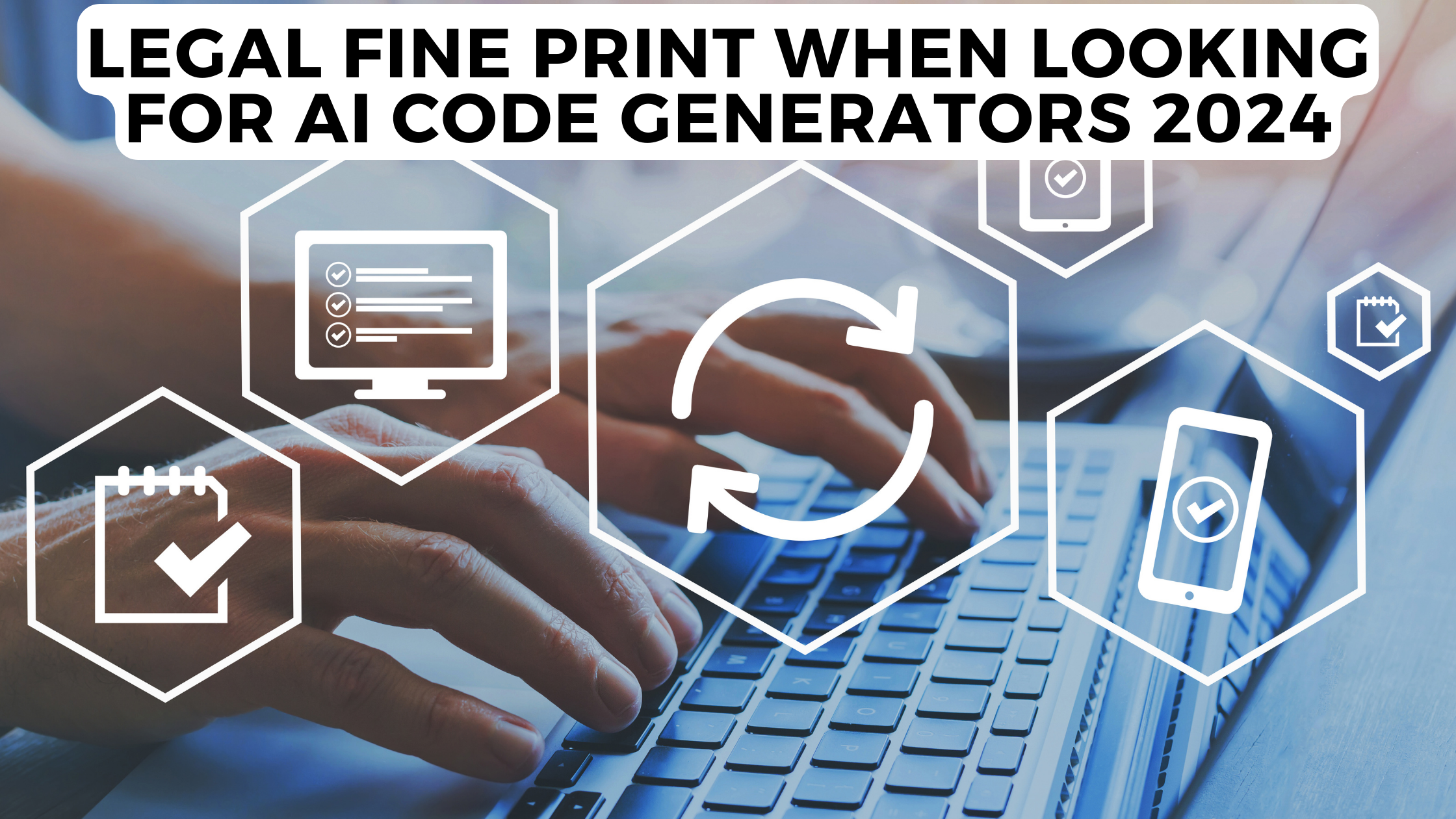Legal Fine Print When Looking for AI Code Generators
- AI Image Generators Software AI Writing Assistant Popular Tools AI Tools


Legal Fine Print When Looking for AI Code Generators
In the rapidly evolving landscape of AI code generators, navigating the legal intricacies is crucial for businesses and developers alike. As of 2024, understanding the legal fine print associated with AI code generators is paramount to ensure compliance, intellectual property protection, and ethical usage. This comprehensive guide delves into the key legal considerations and offers insights for those seeking AI code generators.
Key Legal Considerations
1. Intellectual Property Rights
When exploring AI code generators, it’s vital to grasp the implications on intellectual property (IP) rights. Understand the ownership of generated code and whether the AI tool claims any rights. Clear documentation on the transfer of IP rights is essential to avoid future disputes.
2. Data Privacy and Security
AI code generators often rely on extensive datasets. Ensure that the tool complies with data privacy regulations like GDPR or CCPA. Assess how user data is handled, stored, and whether the AI tool guarantees the security of sensitive information.
3. Open Source Components
Verify the usage of open-source components within the AI code generator. Some tools integrate open-source libraries, each with its licensing terms. Complying with these licenses is crucial to avoid legal complications.
4. Ethical Use of AI
Consider the ethical implications of AI-generated code. Some jurisdictions may have guidelines or regulations governing the ethical use of AI. Understand and adhere to these principles to ensure responsible and legal deployment.
5. Liability and Indemnity
Review the liability and indemnity clauses in the terms of service. Clarify issues related to software bugs, errors in generated code, or any unforeseen consequences. Establishing clear liability frameworks mitigates potential legal risks.
Relevant SaaS Products
As you embark on the journey of exploring AI code generators with a keen eye on legal considerations, here are some relevant SaaS products that align with your search:
- OpenAI Codex: Leverage OpenAI’s powerful language model for code generation with clear usage policies.
- GitHub Copilot: Explore GitHub’s AI-powered code completion tool, understanding its integration with open-source licenses.
- TabNine: Delve into TabNine’s AI autocompletion tool, focusing on its approach to data privacy and ethical AI.
Conclusion
In the ever-evolving landscape of AI code generators, staying informed about the legal nuances is key to making sound decisions. As technology advances, the legal framework must adapt. Remember to regularly revisit the legal considerations outlined in this guide to stay abreast of any changes in the legal landscape surrounding AI code generators.
Now that you’re well-versed in the legal landscape of AI code generators, optimizing your SaaS subscriptions becomes paramount. Subscribed.FYI offers an intuitive platform to manage and compare SaaS tools efficiently. Unlock exclusive deals to save on your SaaS expenses, providing a centralized solution for freelancers, agencies, and teams.
Subscribed.FYI aligns with the article’s theme by empowering users to make informed decisions about SaaS tools. As you navigate AI code generators, Subscribed.FYI ensures that managing these tools is seamless and cost-effective, emphasizing the importance of understanding legal aspects in your tech stack.
Relevant Links:








